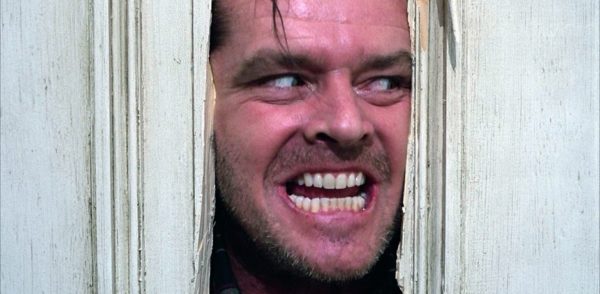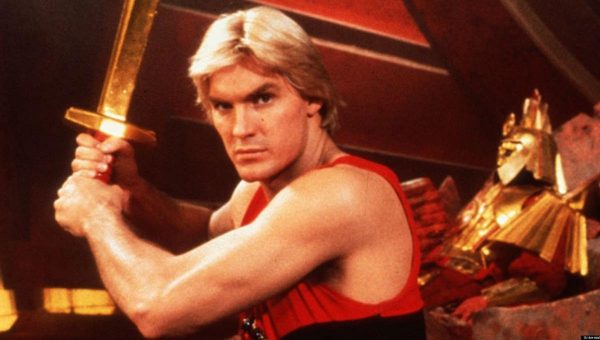Tom Jolliffe looks back at 1980, a key turning point in cinema…

After a decade that began with an overwhelming air of pessimist cinema, the end of the 70’s would mark the beginnings of a significant turn around in box office tastes.
By 1980 Steven Spielberg and George Lucas were household names. Star Wars, Jaws and Close Encounters of the Third Kind at the tail end of the last decade had opened cinematic eyes to the big budget spectacle. It marked the beginnings of a rise in popularity for big budget films which historically would have been low budget B pictures. 1980, the turning point between decades, would mark perhaps the last great cinematic shift in audience tastes. Likewise, the decade that followed would mark a significant turning point in the consumption of film. Home video would mean a more significant life after theatrical release for big studio films, as well as expanding the available options beyond cinema and TV premieres and offering viewers a limitless array of choice. Indeed it also offered many studios a second chance at salvation. Your film bombs at the box office? Well video can save it.

Of the big releases in 1980, the most significant jumps out straight away. Star Wars: Episode V – The Empire Strikes Back. Firstly, this is a film which perfectly encapsulates the blueprint of the modern blockbuster as we know it. Not only is it filled with visual FX which stunned audiences at the time, it also happened to be a sequel. Sequels weren’t new of course, but Star Wars was the first major property to be franchised and tied in with merchandise too. Now this is standard procedure with most popular blockbusters. George Lucas’ intergalactic space adventure would pick up where the first film left off, as THE film to watch that year. The rest, as they say, is history. Now of course Star Wars started it, but to become franchise, to become what we know it is today, it all rests on that second film doing well. It did.
Elsewhere in 1980, you might say that escapism was the order of the day. Flash Gordon, thanks to Star Wars seemingly re-invigorating the B movie, followed in Han Solo’s slip stream. In retrospect, whilst the film wasn’t particularly successful initially, it’s slowly grown into being a campy cult classic, so the blockbuster sure fire thing certainly wasn’t perfected that early. Yes, Empire Strikes Back would inevitably take the gloss off of rival space adventures that year, but Gordon was enjoyably old fashioned, without really breaking enough new ground to be considered progressive sci-fi cinema.
Superman II, for all the behind the scenes issues was a successful follow up to the original, and less impressively all round, helped create a platform for franchise thinking. The less said about Superman II and IV, two duds later in the 80’s (though, how can you not love them, III particularly?) the better. Still, a year of eye catching fantasy essentially set the tone for a decade full of films like Krull, Legend, Labyrinth, Masters of The Universe, Conan the Barbarian (and a whole huge array of sword and sorcery epics to follow in Arnold’s beefy wake too). A few variations aside, what became popular that decade, still remains the order of the day now. Comic book properties, Star Wars properties and fantasy FX driven adventure films.
If the 70’s seems to be a decade somewhat light on comedy, 1980 certainly proves to be a significant turning point too. The Blues Brothers, Caddyshack, Airplane, 9-5 and Stir Crazy among a slew of iconic comedies. Girls (and boys) just wanna have fun…was the message from cinema patrons in 1980. From the comedies, to musicals (as well as Blues Brothers, see also Fame), to Clint Eastwood and an Orangutan, fun is the order of the day.

Further to that, horror would go from very psychologically infused to a little simpler in the 80’s, further popularising the slasher and later, horror films with a strong MTV/Music video influence. Friday The 13th introduced the world to Jason Voorhees (albeit in the first offering, only as a child at the end), Jamie Lee Curtis continued her scream queen rise in Prom Night, whilst Changeling represented a last hurrah for 70’s style horror, and The Shining, Kubrick’s masterpiece was initially met with a mixed response. An entity unto itself too, but the mesmerising and persistently unsettling Nicholson horror is one of the years most memorable. Another film that year, Cannibal Holocaust is an iconic micro budget horror film, that was highly controversial and would later become an early example of the video nasty.
There were still some serious entries into the cinemas too, and indeed, a film like Fame perfectly captured the border of two decades very well. With iconic, ear worm songs and dazzling energy Fame is iconic, but also, it’s dark, it’s insightful, dramatic and gritty (and no less prescient now than it was in 1980). As well as being an iconic musical, searing drama, it’s also an essential piece of LGBT cinema and the 80’s would become more open to sub-culture cinema. Less memorable, but still quite essential, is William Friedkin’s Cruising. The subject isn’t handled with as much sensitivity, because of its era, but it’s a fascinating entry into Al Pacino’s CV, and the beginnings of a somewhat experimental decade for him.
Raging Bull marks the best dramatic film of the year. Martin Scorsese, on something of a regression after Taxi Driver’s success in 1976, hit form again with an inspired De Niro and Joe Pesci. It still remains one of the best in their respective CV’s. The Elephant Man, with David Lynch as restrained and linear as you’re likely to see, was also a great piece of film-making with a wonderful central performance by John Hurt. One of the other classic entries of the year, which would become more iconic over time, was The Long Good Friday. It still remains one of the finest examples of the British gangster film and for better or worse, inspired Guy Ritchie to follow in its wake 18 years later. Indeed, Messrs Lucas and Spielberg (along with Francis Ford Coppola) were also instrumental for another classic from the year, putting their names behind Akira Kurosawa’s epic, Kagemusha to boost it’s profile.
40 years later and the landscape doesn’t look too much different. Not only was 1980 a cornerstone in cinematic evolution, it also represents a fairly strong year of output (particularly in comparison to 1970 for example). What’s your favourite film from 1980? Lets us know your thoughts in the comments below or on our Twitter page @flickeringmyth…
Tom Jolliffe is an award winning screenwriter and passionate cinephile. He has a number of films out on DVD/VOD around the world and several releases due in 2020, including The Witches Of Amityville Academy (starring Emmy winner, Kira Reed Lorsch). Find more info at the best personal site you’ll ever see here.













